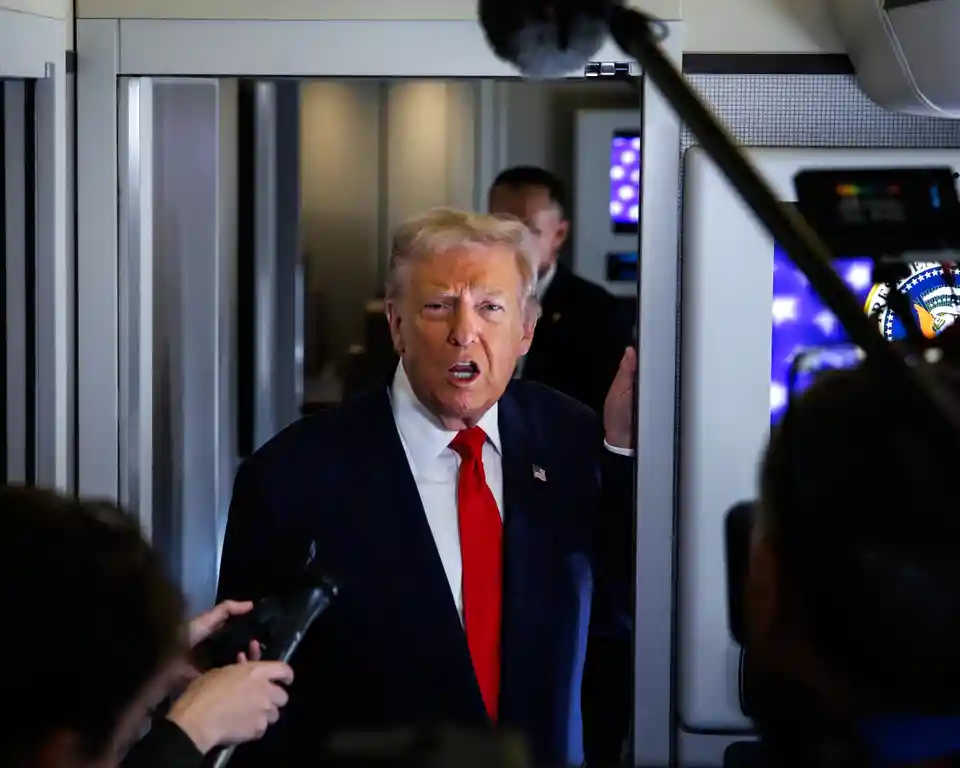The President of the United States of America, Donald Trump, has charged unilateral military intervention in Nigeria, instructing the Department of War to prepare for possible action.
This threat was disclosed through his Truth Social platform on Saturday, 1st November, 2025, where the U.S. President warned he would go “guns-a-blazing” into Nigeria to combat Islamic terrorists if the alleged Christian genocide fail to stop.
Accompanying the threat is a pledge to immediately stop all aid and assistance to the country, pressuring the Nigerian government to act faster.
“If the Nigerian Government continues to allow the killing of Christians, the U.S.A. will immediately stop all aid and assistance to Nigeria, and may very well go into that now disgraced country, ‘guns-a-blazing,’ to completely wipe out the Islamic Terrorists who are committing these horrible atrocities,” Trump stated in the post.
Emphasising on the potential nature of the threat, Trump added that: “I am hereby instructing our Department of War to prepare for possible action. If we attack, it will be fast, vicious, and sweet, just like the terrorist thugs attack our CHERISHED Christians! WARNING: THE NIGERIAN GOVERNMENT BETTER MOVE FAST!”
The recent statement underlined a significant intensification of Trump’s stance in the alleged Christian genocide, just a day after he designated Nigeria as “country of particular concern.”
Recall that the U.S. government announced the redesignation of Nigeria as a “Country of Particular Concern,” a label used by the U.S. government to identify nations engaged in severe violations of religious freedom—the move which reinstated a designation his previous administration had pegged on Nigeria, which was later lifted by the former President Joe Biden.
The former president explicitly blamed radical Islamist terrorists for what he framed as the “mass slaughter” of Christians in Nigeria, a claim that has been a source of significant debate and complexity within the country, where inter-communal violence often involves a tangled mix of ethno-religious conflict, resource competition, and criminal banditry.
In swift response to the initial redesignation, the Nigerian President, Bola Tinubu, issued a firm and unequivocal rejection of the claim. The Nigerian government strongly refuted the characterization of the nation as a persecutor of religious adherents, asserting its foundational democratic principles.
A statement from Abuja clarified Nigeria’s constitutional stance, emphasizing that the nation is “a democracy anchored on constitutional guarantees of freedom of religion and belief.” The government’s reaction highlighted the sensitivity of the issue and the potential damage such a designation could inflict on Nigeria’s international reputation and its bilateral relationship with the United States.

